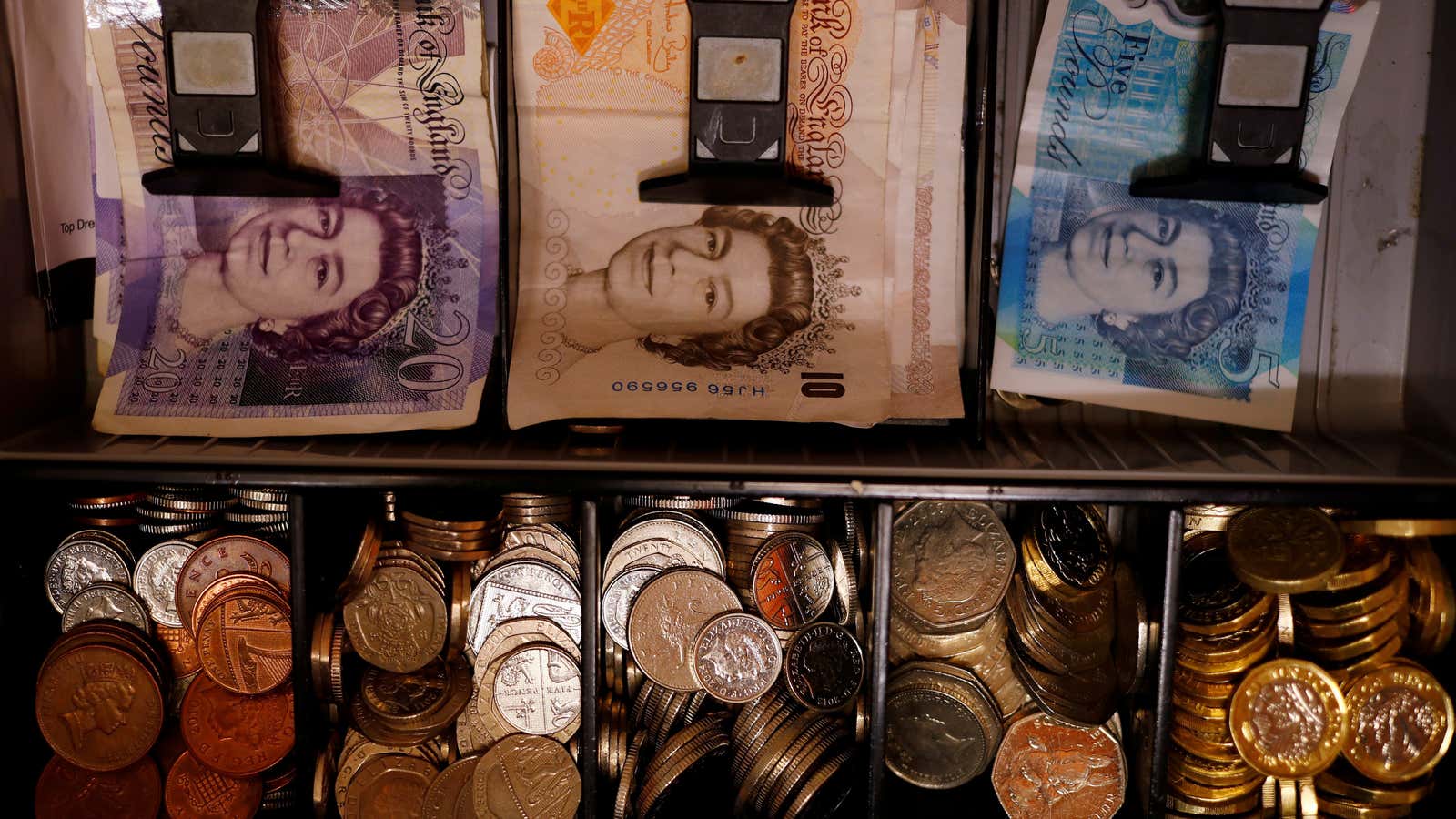As society accelerates into its digital future, the UK is taking steps to protect the centuries-old technology known as paper money.
Digital payments are rapidly becoming ever more commonplace, so much so that even the world’s central banks are debating whether to issue an electronic form of money to the public. But increasingly cashless Britain, where many bank branches and ATMs have vanished, has become a reminder of the risks of leaving physical money behind too quickly. Some 10% of Brits still use cash for all or most of their daily purchases, and the poor and elderly can be especially reliant on it.
The spread of cash deserts sparked an uproar in communities from Wales to Scotland, and officials have searched for ways to shore up physical infrastructure that is becoming outmoded but is still vital for many people and businesses. To counteract a steep decline in the number of bank branches and ATMs, Community Access to Cash Pilots—an independent initiative backed by banks, consumer groups, and small business representatives—started a program of “banking hubs” in April in a town in Scotland and another in eastern England.
How the UK is protecting cash
Banks in the UK have been shutting down branches at a rapid clip to cut costs as more customers rely on apps, and the number of ATMs has likewise been dwindling for years.
The decline in usage of physical money has accelerated around the world during the Covid-19 pandemic as more buying and selling takes place online and as businesses try to keep transactions socially distant and sanitary. As the infrastructure for physical currency goes away, it can feed a worrisome cycle—more businesses will refuse to accept cash because processing it takes more time and is more costly. That can put pressure on the elderly and other vulnerable people who aren’t comfortable going online, or can’t go online, for financial services.
The UK’s hubs are a partnership between the country’s Post Office, which offers counter service for basic cash needs, and the five largest nearby banks, which take turns providing staffing. By sharing the real-estate, banks can save money on overhead costs, while locals could get access to a wider range of financial institutions. The pilot was supposed to finish next month but has been extended to at least April 2023.
🎧 For more intel on digital currencies, listen to the Quartz Obsession podcast episode on the future of cash. Or subscribe via: Apple Podcasts | Spotify | Google | Stitcher.
Experiments like the UK’s banking hubs show that officials will have to be creative in the coming years as cash usage declines. Central banks, including the Bank of England, are looking into digital currencies to make sure they can still support the public as more transactions go digital. But at the other end of spectrum, hard cash has properties that can’t be replicated electronically—it’s anonymous, doesn’t require a bank account, and still works when the power goes out.
One larger bank said half of its customers who used the cashback service could be considered vulnerable. “We can already see the positive role the Hubs are playing in revitalising these local communities—providing essential banking services for individuals as well as a boost for local businesses,” Natalie Ceeney, independent chair of the Access to Cash Action Group, said in a statement. “Extending the pilots gives us more opportunity to really understand what works for people.”
